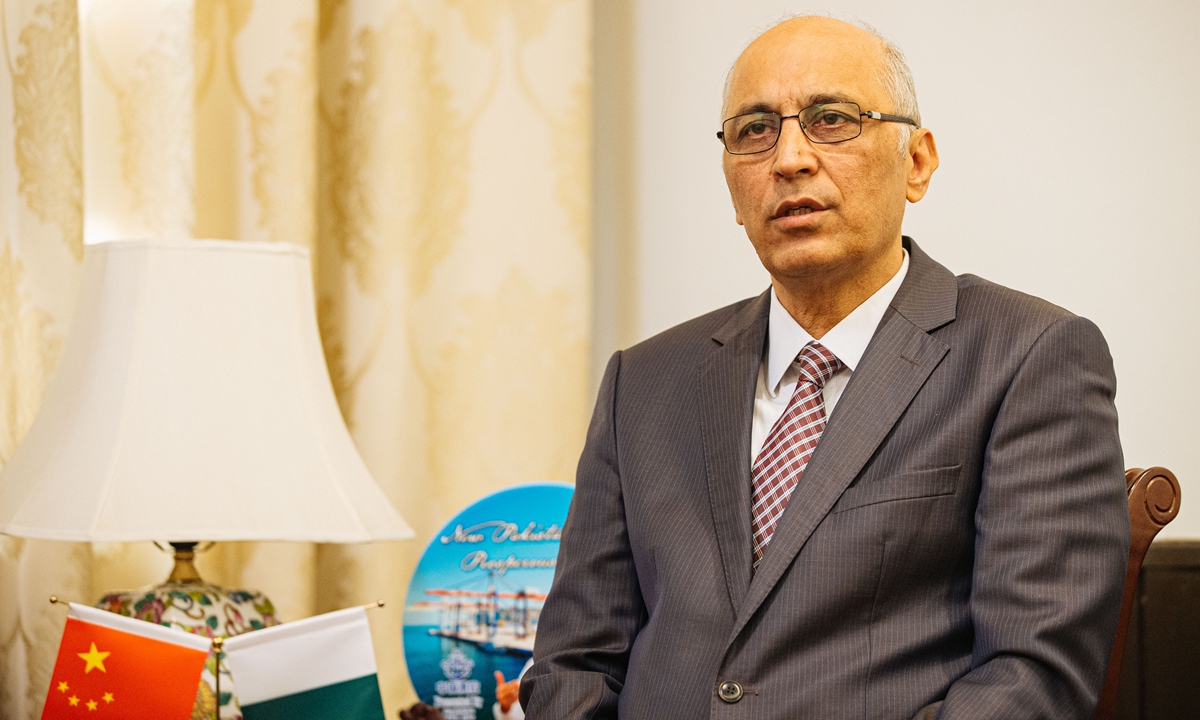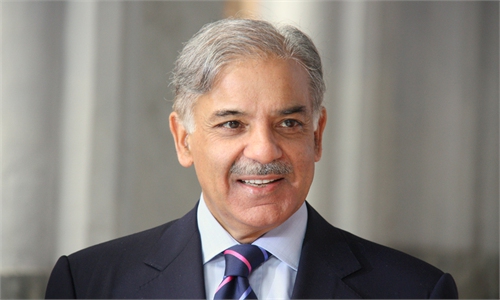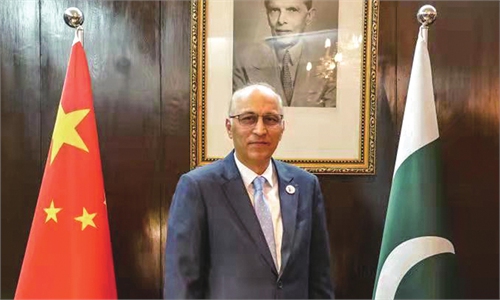
Pakistani Ambassador to China Moin ul Haque Photo: Courtesy of the Embassy of Pakistan in Beijing
China and Pakistan will expand cooperation in key areas of trade, investment, infrastructure, manufacturing, agriculture and IT, Pakistani Ambassador to China Moin ul Haque told the Global Times in an exclusive interview over the weekend, ahead of the official visit of Pakistani Prime Minister Shehbaz Sharif to China starting on Tuesday.Pakistan is among the few countries whose officials have been invited to China after the successful conclusion of the 20th National Congress of the Communist Party of China (CPC), which speaks of the special friendship and strategic mutual trust between the two countries, the ambassador said. This is also the prime minister's first visit to China since assuming office in April.
Sharif will meet with Chinese leaders and representatives of the broad business community, according to the Pakistani ambassador.
"These interactions would provide us with an excellent opportunity to review our bilateral relations and to further expand cooperation in key areas of trade, investment, infrastructure, industry, agriculture and IT," Haque said.
Both sides will discuss important regional and international issues, especially cooperation in addressing global challenges like the pandemic, climate change, inflation and poverty, he noted.
The two countries' ironclad partnership has stood the test of time, especially with China's strong support for Pakistan during this year's serious floods, while the ongoing cooperation for the China-Pakistan Economic Corridor (CPEC) under the Belt and Road Initiative (BRI) is injecting new momentum into the country's recovery from the recent natural disaster.
A report recently published by China Three Gorges International titled "Overview of Pakistan's Power Sector and its Future Outlook" said the energy projects of the CPEC have created more than 46,000 jobs in Pakistan, which has been widely reported by mainstream media in Pakistan. These projects have also greatly helped ease the country's foreign exchange pressure caused by its dependence on energy imports.
The ambassador said that the CPEC marks a new phase in Pakistan-China relations as it puts economic cooperation and connectivity at the center of the bilateral agenda.
Since its inception in 2013, the CPEC has made rapid and tangible progress, and helped Pakistan address power and infrastructure bottlenecks, laying the foundation for sustained economic modernization, the envoy said.
Soon after taking office, Sharif visited a number of CPEC projects and prioritized their early completion.
Co-chaired by senior officials of Pakistan and China, the 11th meeting of the CPEC-Joint Cooperation Committee (JCC) held on Thursday expressed satisfaction at the steady pace of CPEC projects.
During the meeting, both sides emphasized the importance of the CPEC for economic prosperity and agreed to finalize all procedural formalities prior to launching new projects, including ML-I and the Karachi Circular Railway.
With smooth progress, the ambassador expressed his confidence that guided by the strategic vision of the leadership of the two countries and the hard work of the relevant departments and participating units, the "CPEC would emerge as a lynchpin of regional connectivity and economic integration."


